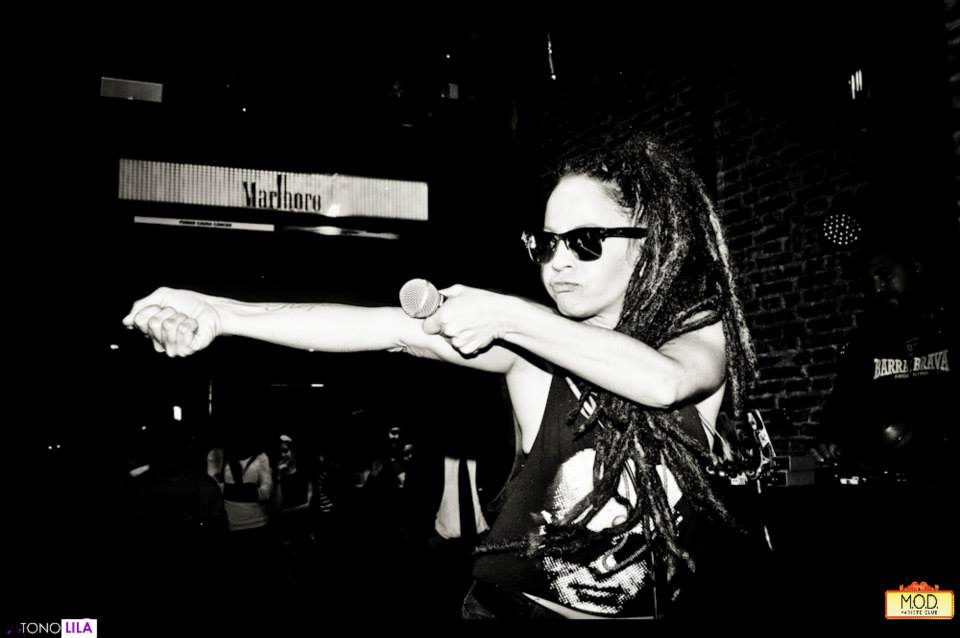Brazil: Karol Conka — “Vô lá”
I think I’ve had dreams where hip-hop group Dead Prez went to Brazil and engaged in some serious musical fusão. Happily, about a week ago I discovered Karol Conka, a 27-year-old rapper who grew up poor in the southern state of Paraná. This song’s title, “Vô lá,” means “I see you there.” It’s as though she’s letting Brazil’s oligarchs know that she’s watching them.
